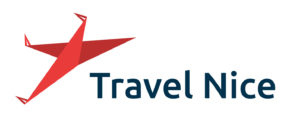Travelling needs to be as smart and efficient for people as it can be. The travel industry is constantly looking for ways to make their services better for travellers in order to get ahead of the competition. Fast and efficient customer service forms the heart of the travel industry or any business for that matter. Moreover, with the fast progression in technology, businesses have to keep their systems up to date and user-friendly. Integrating advanced, computerized systems in businesses are becoming more and more effortless with third-party SaaS solutions that have become available with time. Biometric authentication is one of these systems that have made travelling easier for people.
Eliminating Endless Documentation
According to studies and surveys, biometric verification of travellers – whether it is facial, fingerprint or iris scans – speeds up check-in procedures, passport control checks and boarding by nearly 40%. Biometric authentications, however, are not limited to airports. Hotels and holiday resorts can also make use of automated customer verification procedures to speed up the check-in and check-out processes. Hotels in China are now experimenting with facial recognition technology by using it for check-ins. The guests have to scan their ID documents and verify themselves through facial scans. The automated system then uses those details to corroborate them with the booking details of the guest and assigns them their room key. This process has reduced the check-in time at hotels from three minutes to one.
Cruise ships are also making use of facial recognition to reduce the time for onboarding passengers. With the technology, they have managed to reduce the processing time by 40% in the US. The car booking service, Hertz, is also using biometric verification to verify customers who have pre-booked their cars. They use fingerprint or facial recognition to authenticate customers’ identities.
Increasing Security
As biometric scans have become a mainstreamed technology ever since it was incorporated in smartphones. Therefore, people nowadays almost expect biometric methods to keep their information and data secure. The travel industry is also making use of biometric technology to increase the security of customers to reduce cases of frauds like identity theft and credit card fraud. Fraudsters often use stolen identities, credit cards or other credentials for travelling purposes. Moreover, travellers, in general, are also more prone to falling victim to such frauds as they are in a foreign place. Biometric verifications prove to be immensely useful while authenticating customers’ identities. They allow for real time ID verification to reduce fraud and therefore protect both the business as well as the customer.
Increased Personalisation
Another advantage of using biometrics in travel, from a marketing point of view, can be to increase personalization in services. The data from biometric verifications can be used along with a customer’s preferences to tailor the services according to the traveller’s needs. For example, gathering data from their preferences hotel rooms can be set to the desired temperature of a guest. Incorporating AI into such systems can enable for faster and more efficient analysis of data thus allowing businesses to make their services more customized for customers.




